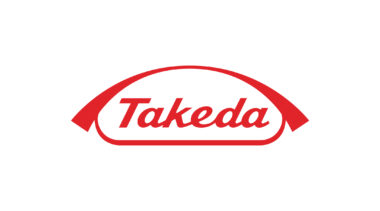Scientists from RMIT University and the Doherty Institute have developed a new blood test that could screen cancer patients to help make their treatment safer and more effective.
About one in two Australians will be diagnosed with cancer by the age of 85.
The first-of-its-kind test can rapidly assess how effective different polyethylene glycol (PEG) based nanomedicines are at killing cancer cells and minimising side effects using just a drop of blood from people with leukemia, a type of blood cancer.
Nanomedicines comprise tiny particles, much smaller than a cell, that interact with the body in precise ways. These tiny particles are designed to carry drugs directly to diseased cells, such as cancer cells, with the aim of sparing healthy ones.
Nanomedicines including Doxil, Onpattro (patisiran) and Vyxeos have been approved for clinical use in Australia and the United States, while others are emerging but not yet being used in healthcare settings.
Dr Yi (David) Ju, an Australian Research Council DECRA Fellow at RMIT University, led the study with The University of Melbourne’s Professor Stephen Kent, a Laboratory Head at the Doherty Institute, in collaboration with Professor Constantine Tam, Head of Lymphoma Service at The Alfred. Tam was at the Peter MacCallum Cancer Centre during the study.
The team’s proof-of-concept test is not yet available in clinical settings such as general practices and hospitals, but it could be further developed and rolled out in collaboration with industry partners and government support within the next few years.
The researchers say their innovation, described in ACS Nano, represents a big step forward in understanding how nanomedicines interact with blood cells in leukemia patients.
"Our study sheds light on why some cancer patients respond better to nanomedicine therapies than others,” said Ju, from the School of Science.
“By understanding these differences, we can develop more personalised and effective treatments for leukemia patients."
How they conducted the study
The study tested three different PEG-based nanomedicines on the blood of 15 people with leukemia.
The researchers added the nanomedicines separately to blood samples, which were incubated at 37 degrees Celsius for one hour.
“We assessed how well the different nanomedicines targeted cancers in the blood as well as healthy cells,” Ju said.
“That way we could determine which therapies were most effective for different people.”
The findings
Earlier research by the team indicated that if people developed high levels of anti-PEG antibodies from mRNA vaccines then future mRNA treatments for conditions including cancer may be less effective, as their bodies would clear the therapeutics more quickly. PEG is a commonly used compound in mRNA vaccines.
They also found individual immune responses played a significant role.
“In this latest study, we explored how different nanomedicine formulations work with blood from patients,” Ju said.
“We found that differences in people’s immune systems affects how well these therapies worked against cancer cells, as well as side effects.”
The team observed the difference in anti-PEG antibodies present in each individual’s blood samples, Ju said.
“The greater the presence of anti-PEG antibodies in people’s blood the less effective these therapies were at killing cancer cells – in fact, these therapies were more toxic to healthy cells.”
Doxil, which is a common nanomedicine used to treat ovarian cancer, AIDS-related Kaposi’s Sarcoma, and multiple myeloma, was found to be affected strongly by the anti-PEG antibodies. This means that for some people the therapy was targeting healthy cells involved in the blood’s immune response more than cancer cells. The researchers note that Doxil is not used to treat leukemia in clinical settings.
The experiments showed that Doxil was still the most suitable option for some of the individuals tested compared to the other nanomedicines.
The most effective targeted nanoparticle against leukemia was the team’s own formulation of pure PEG nanoparticles.
Next steps
This study will help guide the development of next-generation cancer nanomedicines and improve the selection of patients for personalised treatments.
The findings indicate that simple blood tests could be used to personalise nanoparticle-based therapies not just for people with leukemia but also solid-tumour cancers such as breast and ovarian cancers, Tam said.
“Understanding individual variations in immune response could lead to more effective and safer treatments by tailoring nanoparticle formulations to each patient’s unique immune profile,” he said.
“Our innovation has strong potential for pharmaceutical companies seeking to develop targeted treatments for previously untreatable cancers,” Kent said.
“We are keen to partner with industry leaders to co-develop this technology and expedite its translation into clinical applications,” Ju said.
“Patient-specific nanoparticle targeting in human leukemia blood” is published in ACS Nano (DOI: 10.1021/acsnano.4c09919).
MULTIMEDIA FOR MEDIA USE:
Images are available for use by media: https://spaces.hightail.com/space/DEcdc6RexU
Contact details:
To arrange interviews or for other media assistance, contact Will Wright at [email protected] or on 0417 510 735.


